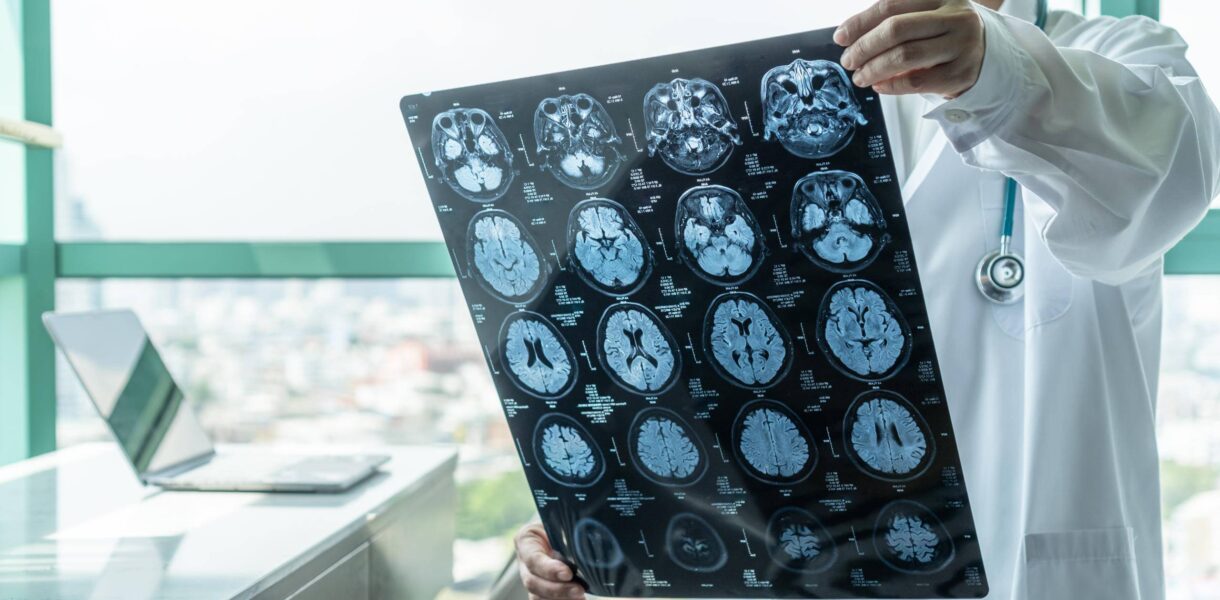
How Dementia is Diagnosed
Dementia is an umbrella term that covers a wide range of medical conditions caused by abnormal brain changes. These changes cause a decline in cognitive abilities that impair daily activities and affect behavior. Since there is no one way to definitively diagnose Alzheimer’s and other forms of dementia, the process can be complicated.
A few common approaches to memory loss diagnosis are:
- Examining medical history
Past and current medical conditions, medications and family history are discussed to try to identify medical issues that can cause symptoms of dementia. Be prepared to answer questions about psychiatric history, as well as cognitive and behavioral changes.
- Physical exam
This is similar to a routine physical, but with an extensive review of medications and a collection of blood and urine samples. Family members might also be asked to answer questions about changes in your behavior or a decline in abilities.
- Neurological exam
Reflexes, muscle strength, speech, coordination and sensation are tested to rule out other conditions that impair memory, like a stroke, Parkinson’s disease, or brain tumors.
- Mental cognitive tests
Tests are given to evaluate function, judgement, attention and language.
- Brain imaging
Magnetic resonance imagining (MRI) and computed tomography (CT) are used to rule out tumors, stroke, severe head trauma, and fluid in the brain—all which cause symptoms similar to Alzheimer’s, but are treated differently.
Watch the following video to get a more detailed look at dementia diagnosis.
https://www.youtube.com/watch?v=LieVEfI4luw&feature=emb_logo
Believe it or not, there are advantages to early detection. The earlier the diagnosis, the more options one has to manage their symptoms and possibly benefit from treatments and/or clinical drug trials. An early diagnosis also allows an individual more time to plan for their future—they can actively participate in decisions about care, financial and legal matters, and explore various assisted living options.
Avalon Memory Care welcomes inquiries from individuals diagnosed with dementia who would like to begin planning for their long-term assisted living needs in Houston, Arlington and Dallas. Call (972) 713-1383 to request a tour of our beautiful, home-like memory care locations.
Sites Consulted:
(https://www.mayoclinic.org/diseases-conditions/dementia/diagnosis-treatment/drc-20352019)
See More Articles
-
Visiting Your Aging Parent With Memory Loss at Avalon Memory Care
As a loving son or daughter, you naturally want the best of care for your senior parent. The compassionate assisted living caregivers at Avalon Memory Care want you to know that while your parent is living with us, he or she will receive nothing less than respectful, loving care within our comfortable, safe, and fully-staffed
-
Celebrating New Year’s Day in Memory Care
Families often find that celebrations with their loved ones in memory care are easier when they embrace new traditions. For instance, it may not be practical to expect your loved one to stay up until midnight on New Year’s Eve. Instead, consider throwing a New Year’s Day celebration, complete with a countdown to the first
-
Understanding Parkinson’s Disease and Dementia
Parkinson’s disease is an incurable neurological disorder, with progressively worsening complications. Perhaps the most well-known symptom of Parkinson’s is a hand tremor, but it can also cause speech changes, muscle rigidity, and impaired posture. Eventually, as the disease progresses, more than half of all individuals with Parkinson’s will require dementia care. This particular type of
Testimonials
Downloadable Resources
We Are Avalon
Discover the heart of our community; download ‘We Are Avalon’ to get to know our dedicated team and our commitment to providing a warm, family-like environment.
Transitional Care Guide
If you’re considering a transition, we’re here to help; download our Transitional Care Guide for compassionate guidance through each step of the process.
Schedule a Tour
Visit one of our 30+ campuses and experience our unique approach to memory care.












